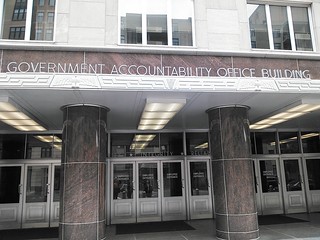 Georgia’s two nuclear sites got more than a safety violation a month
over a dozen years, and now the Nuclear Regulatory Commission (NRC)
is shut down.
Maybe we need power sources that don’t need so much safety inspection,
like solar and wind and efficiency and conservation.
Georgia’s two nuclear sites got more than a safety violation a month
over a dozen years, and now the Nuclear Regulatory Commission (NRC)
is shut down.
Maybe we need power sources that don’t need so much safety inspection,
like solar and wind and efficiency and conservation.
AP wrote yesterday, 166 violations issued at Ga. nuclear power plants,
A congressional study expected to be released later this month shows that two nuclear power plants in Georgia were issued 166 safety violations between 2000 and 2012.
The unreleased Government Accountability Office report obtained by the Associated Press shows that Plant Hatch in Baxley was issued 90 safety violations during the time period. According to the report, three of the violations were higher-level offenses.
According to the report, Plant Vogtle in Waynesboro was also issued 75 safety violations between 2000 and 2012.
Allison Macfarlane wrote on the NRC blog 9 October 2013, From the Chairman: An Update on the NRC Shutdown, Continue reading










